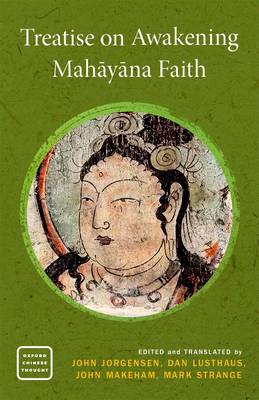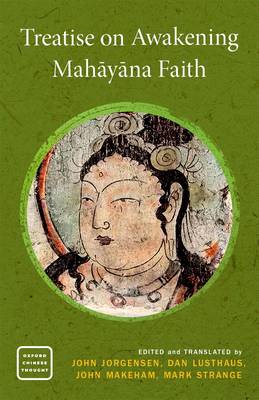
- Afhalen na 1 uur in een winkel met voorraad
- Gratis thuislevering in België vanaf € 30
- Ruim aanbod met 7 miljoen producten
- Afhalen na 1 uur in een winkel met voorraad
- Gratis thuislevering in België vanaf € 30
- Ruim aanbod met 7 miljoen producten
Treatise on Awakening Mah=ay=ana Faith
Omschrijving
Dasheng qixin lun, or Treatise on Awakening Mah=ay=ana Faith has been one of the most important texts of East Asian Buddhism since it first appeared in sixth-century China. It outlines the initial steps a Mah=ay=ana Buddhist needs to take to reach enlightenment, beginning with the conviction that the Mah=ay=ana path is correct and worth pursuing. The Treatise addresses many of the doctrines central to various Buddhist teachings in China between the fifth and seventh centuries, attempting to reconcile seemingly contradictory ideas in Buddhist texts introduced from India. It provided a model for later schools to harmonize teachings and sustain the idea that, despite different approaches, there was only one doctrine, or Dharma. It profoundly shaped the doctrines and practices of the major schools of Chinese Buddhism: Chan, Tiantai, Huayan, and to a lesser extent Pure Land.
It quickly became a shared resource for East Asian philosophers and students of Buddhist thought.
Drawing on the historical and intellectual contexts of Treatise's composition and paying sustained attention to its interpretation in early commentaries, this new annotated translation of the classic, makes its ideas available to English readers like never before. The introduction orients readers to the main topics taken up in the Treatise and gives a comprehensive historical and intellectual grounding to the text. This volume marks a major advance in studies of the Treatise, bringing to light new interpretations and themes of the text.
Specificaties
Betrokkenen
- Vertaler(s):
- Uitgeverij:
Inhoud
- Aantal bladzijden:
- 184
- Taal:
- Engels
- Reeks:
Eigenschappen
- Productcode (EAN):
- 9780190297718
- Verschijningsdatum:
- 1/10/2019
- Uitvoering:
- Paperback
- Formaat:
- Trade paperback (VS)
- Afmetingen:
- 140 mm x 206 mm
- Gewicht:
- 226 g

Alleen bij Standaard Boekhandel
Beoordelingen
We publiceren alleen reviews die voldoen aan de voorwaarden voor reviews. Bekijk onze voorwaarden voor reviews.










